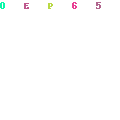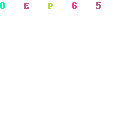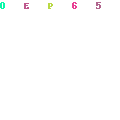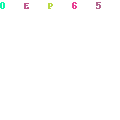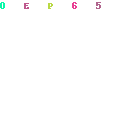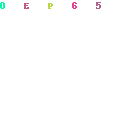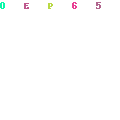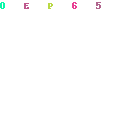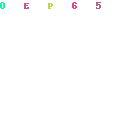
On the night of Sunday 6 August, we held our award-giving ceremony of the 2017 Babishai haiku prize. The judges, after intense deliberation, came up with their final list, and in order, we congratulate Kariuki wa Nyamu from Kenya, on emerging first, Anthony Itopa Obaro rm Nigeria, on emerging second and Kuadegbeku Pamela from Ghana, on emerging third. Congratulations to all that made it to the shortlist.
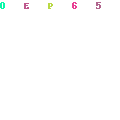
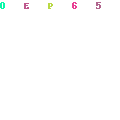
Below are the judges' comments.
JUDGES COMMENTARY ON THREE TOP POEMS
COMMENTARY BY ADJEI AGYEI-BAAH/GHANA
FIRST PRIZE
last night’s rain
in the morning mud
fresh toad prints
Kariuki wa Nyamu/Kenya
The general acceptance that a ‘good’ haiku is born out of a close observation is clearly demonstrated in this haiku. As a persnickety fellow concerned with “little things” and its role in nature was drawn to this haiku by its mere fact of familiarity and yet revealing something unfamiliar. This ku actually connects so well with me as a village boy who used to play with other kids in the mud after rainfall, and had always been fascinated by the footprints we left in the mud, or the ones left by others, and even that of little animals, especially on our way to the farm. But the simple question that unmindful person may ask is, “what after all is remarkable about these footprints, when they are not even of humans but of little animals? And the haikuist will answer: “It’s the little details that are vital. Little things make a big revelation.” Hence the mud prints we leave today become the harden spots for others to travel by tomorrow! Or simply as a way to telling others that we were once HERE! In fact, these are the footprint of wisdom, aside its structural details, that the haikuist left on my mind and hence commends it for the top spot position.
--Adjei Agyei-Baah/ Ghana
SECOND PRIZE
downpour
waterfalls from rooftops
pouring into buckets
Anthony Itopa Obaro/Nigeria
The beauty of this haiku lies in its structure, and diction carefully selected by the poet that culminate into one beautiful poetic puzzle. Firstly, the imposing one-word opener: “downpour” which find its way onto “rooftops” and cascade down as “waterfall” at the turn point of eaves or joints and filling “buckets” down below, is anyway a common scene but still brings to forth the poet’s brilliance and mastery in the chaining of words to birth this beautiful composition. The poet though creates a seemingly setting of delightful season—rain arrival, but yet with its subtle worry of water scarcity. One can envisage a village drown in a prolong dryness or drought compelling people to put buckets and sometimes barrels (at roof joints) to collect rain as substitute for clean water. Indeed, this is a scene very common in Africa and other places in the world, and hence gets my yes as a beautiful piece that succinctly tells an African story.
--Adjei Agyei-Baah/ Ghana
THIRD PRIZE
moon circle
palms into palms
an armless child breaks the ring
Kuadegbeku Pamela/Ghana
The poem has a sterling opener with two circle words, a” moon” and “circle” itself, beautifully stitched to create an outdoor setting of children under moonlight. A noticeable village or city scene which recalls a fond memory and transport the reader down the memory lane, where there are no light and kids and lovers take advantage of the situation to prolong their stay into the night by playing or chatting. But like a good haiku, often imbued with its twist and turns, the joy of the persona is shortly lived, as a gap in the “circle” is revealed─ the missing arms of a child. Though the source be it an accident or a natural occurrence is not clearly stated; the sorry sight of war in Africa (and other places) is quickly brought into mind. Perhaps the real image the poet calls to our attention here. The horrible images of “short sleeve” or “long sleeves” once perpetuated by fiends like Fodah Sankoh (of Sierra Leone) and his kind on our beloved continent Africa rear its ugly head here and surely come as an awakening confirmation to the fact “all the arms we need are for hugging” and not simply for tugging!
--Adjei Agyei-Baah/ Ghana
COMMENTARY BY MERCY IKURI/ KENYA
FIRST PRIZE
last night’s rain
in the morning mud
fresh toad prints
Kariuki wa Nyamu/Kenya
As a pluviophile, this haiku won me over and I welcome it wholeheartedly to the Afriku hall of fame. Most haiku depict what is there; they paint a picture of a striking image as witnessed by the writer. But here we see a writer who, like a detective, is looking at “a clue” left behind in nature and makes a delightful deduction. For me, the alliterating and refreshing “morning mud” kigo added to the memorability of this haiku.
Speaking of kigo, having both “ last night’s rain” and “morning mud” made this haiku feel a little too kigo- heavy but the decision was pardoned as further paring down of this version would perhaps take away from its “oomph” and the African setting it draws inspiration from.
Great poems, books, songs…any truly great thing, really, is that which makes you wish you had written, sang or created it. This haiku did that for me. Congratulations to the writer…Encore!
---Mercy Ikuri/ Kenya
SECOND PRIZE
downpour
waterfalls from rooftops
pouring into buckets
Yet another rainy-season-inspired haiku. This time, depicting a scene those who have ever dealt with leaking roofs know only too well.
While repetition of an idea can re-inforce a message, it is more often than not more effective in the longer forms of poetry. In shorter verses like haiku, it tends to water down the general impact, turning the “aha” moment into a “duh” moment. In this case, the words “downpour”, “waterfalls” and “pouring” had that effect on me.
The saving grace was the imagery of “waterfalls” thundering down into buckets; upgrading streams of rain pouring into a house to “waterfalls” relayed the annoyance of a leaking roof very well. The African setting is clearly captured and relatable to many.
I see a keen eye and a way with words here and I wish the writer many more moments in the haiku limelight.
---Mercy Ikuri/ Kenya
THIRD PRIZE
moon circle
palms into palms
an armless child breaks the ring
Kuadegbeku Pamela/Ghana
In the same way the armless child breaks the playful circle, this haiku breaks one’s line of thinking, forcing you to dwell on it a little while longer. And that is something I appreciate about creatively crafted haiku; the ability to make the reader “stop and see” in the same way the writer did when inspiration struck.
Without the line “moon circle”, I feel that this would be such a poignant senryu. Considering this, the first line feels a little “patched into place” in order to avoid standing out as a senryu in a sea of haiku. To the writer’s credit, however, the images of the moon’s circle and a ring of children complemented each other well enough.
The contrast brought in by the last line’s revelation evokes an emotional response, making it a most memorable piece. To the writer I say “Bravo!”, you have earned your place in my personal “haiku hall of faves” and “Encore!”
---Mercy Ikuri/ Kenya
COMMENTARY BY EMMANUEL JESSIE KALUSIAN/ NIGERIA
FIRST PRIZE
last night's rain
in the morning mud
fresh toad prints
Kariuki wa Nyamu/Kenya
The haiku begins by telling us of the past night's experience-- a merciless downpour i guess. Interestingly, at first light the personae of the poem is not only met with wetness in the mud, but something revelatory: the incessant prints of toads, who have toiled the night and soiled the mud. Three things strike me in this haiku. One: the gentle way it peels back layers of understanding. Every line of the 'ku is doubtless a revelation that invites the reader further into the poem. Two: is the aha-line 'fresh toad prints'. It is so vivid and punchy that i can even see and tread in the toad prints myself! This is one thing well-written haikus do. The last and the most obvious is its Africanness. The scenario painted is one the average African can easily relate to. Finally, for lack of a better word, let me tell this great haijin bravo for composing such a gem.
---Emmanuel Jessie Kalusian/ Nigeria
SECOND PRIZE
downpour
waterfalls from rooftops
pouring into buckets
Anthony Itopa Obaro/Nigeria
The haiku begins with noise, gusts of rain pouring hard on a roof. In the second line of the poem, the haijin is tempted to state a thing twice. Instead of saying 'water from rooftops' (which would have been so obvious). He euphemistically and quite satirically (in view of the state of the personae's roof) refers to it, interestingly not as leaky
roof but as 'waterfalls'. This changes the entire view of the poem and makes the reader see mere raindrops from a whole new light! In truth, the use of Euphemism in the poem brings me to the question of whether figure of speech, even the slightest form of it is allowed in haiku composition. Well since Matsuo Basho, the great Japanese haiku writer used metaphor in one of his verses. Haijins from all over the world have been taking a cue from him. But let me quickly point out here that those who use figure of speech and are lauded have been using it skillfully and technically, in such a way that the reader hardly notices. Not verbatim and pointedly as it is used in other forms of poetry. And yes, Anthony gave a skillful rendition of it in this poem. In the pivot line of the 'ku 'waterfalls' from 'rooftops' flows into buckets, which i love to think, the personae intentionally positioned. Altogether makes this haiku continue in my head long after it is read. Something well-written haikus with beautiful moments are wont to doing. Conclusively, the third line of this haiku, especially the verb 'pouring' puts the poem in an ever present state, which is also the hallmark of a well-written in view of the form's basic aesthetics.
---Emmanuel Jessie Kalusian/ Nigeria
THIRD PRIZE
moon circle
palms into palms
an armless child breaks the ring
Kuadegbeku Pamela/Ghana
This haiku has a touch of poignancy and childhood. In the first line, we see a circle is formed around the moon by children at play. The poem progresses to the second, where we see palms linked. But the aha-line is really where the 'magic' lives. An armless child brings 'his' oddness to the ring, and the ring as if knowing cuts abruptly, and all the children notice the one who isn't like them. And i guess the child is sent away or the play loses its savour. The bone of contention here, is that the way we are, whether deformed by an accident or born deformed pointedly determines how we are accepted or how we enter certain places and forums. Have you ever seen a cripple enter a bank? Does he enter the same way as a whole man? Do people look at him pitiably the same way as the whole man? Does his mere presence contour the expression on the faces of people? The answers are not far-fetched, and this haiku poet gives the subject matter a better case and a fine rendering.
---Emmanuel Jessie Kalusian/ Nigeria
